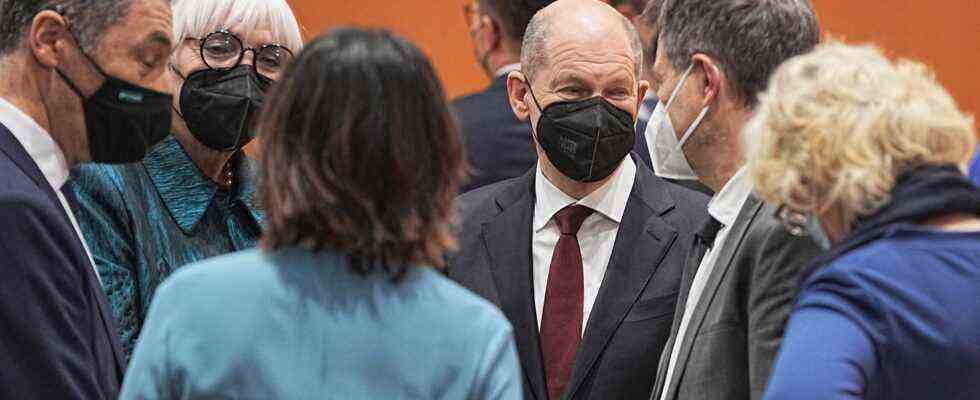Status: 01/26/2022 5:30 p.m
There are two East German ministers in the 17-strong Scholz cabinet. And people of West German origin also dominate within the ministries. The Left Party speaks of a “low point”.
Almost 20 percent of people with German citizenship are East Germans. Born in the GDR or in the so-called new federal states. But the representation of East Germans in the federal ministries is significantly lower. Because if you were to convert the East German share of the entire population into state secretary posts in the ministries of the new Ampel government, six or seven of these positions would have to be filled by someone who comes from East Germany. In fact, it’s only one of 33.
Only in the Federal Ministry of Health is there an East German State Secretary. Antje Draheim comes from Rostock. All other state secretaries are of West German origin. At the level below, people of East German origin are similarly rare. Of the 111 department head posts in the federal ministries, only four are occupied by East Germans.
It is difficult for the federal government’s new East German representative, Carsten Schneider (SPD), to explain this lack of representation. Schneider warns that “it is important for the stability of our political system that people from all over the country find themselves in the government and also feel understood”. This also includes appropriate representation.
What is “appropriate”?
Schneider said nothing about whether he considers the current representation of East Germans in the ministries to be “appropriate.” However, he wants to present a concept in the course of the year that is intended to improve the representation of East Germans. Not only in politics and administration, but also in the media, universities, courts, in the armed forces and in business.
I would like to draw more attention to this problem. Elites usually recruit their successors from their networks. That’s why it seems to me that promoting young talent is an important contribution to solving the problem.
“A punch in the face”
That’s not enough for others – 32 years after German unity. Sören Pellmann, the left-wing parliamentary group’s representative for Eastern Europe, asked the federal government for the figures that are now available and finds:
The representation of the East Germans in the ministries seems to have reached a low point under the traffic light. This is a slap in the face for the citizens of East Germany.
Is that constitutional?
Pellmann strongly criticizes the lack of representation of East Germans in the management level of the federal ministries and even questions the constitutional conformity of this personnel policy. “Because Article 36 of the Basic Law stipulates that positions at the highest federal authorities should be given to staff from all federal states in an appropriate proportion. This is clearly not the case with the federal ministries. I call on the traffic light to read and implement the Basic Law on this issue “Said the left-wing politician from Leipzig.
The Federal Ministry of the Interior, on the other hand, sees no violation of the constitution in the appointment of very many people from West Germany and very few people from East Germany in the management level of the ministries, since the “appropriate ratio” does not mean “that the nationality of the civil servants is strictly proportional to the distribution of the proportion of the country’s population in the total population”. Then the Ministry of the Interior lists the percentage of people who work at state secretary or department head level and who were born in the new federal states for each ministry separately. Most columns have a percentage of 0.0 percent.
Only in the Ministry of Social Affairs, in the Ministry of Health, in the Ministry of Agriculture and in the Federal Ministry of Education and Research are there any East Germans in a management position.
negative development
The University of Kassel is researching the topic under the title “New Elites – Established Personnel”. Not much has changed since reunification, says administrative scientist Sylvia Veit. If one also considers the ministerial posts in the traffic light coalition, the development is even worse.
In the political elite, i.e. at the cabinet tables, the proportion of East Germans is traditionally somewhat higher, but at around nine percent it is currently lower than in most previous governments after 1990.
In the traffic light government, there are two East German ministers, Clara Geywitz and Steffi Lemke, and three other people who grew up in East Germany, Reem Alabali-Radovan, Carsten Schneider and Michael Keller, among the parliamentary state secretaries/ministers of state.

